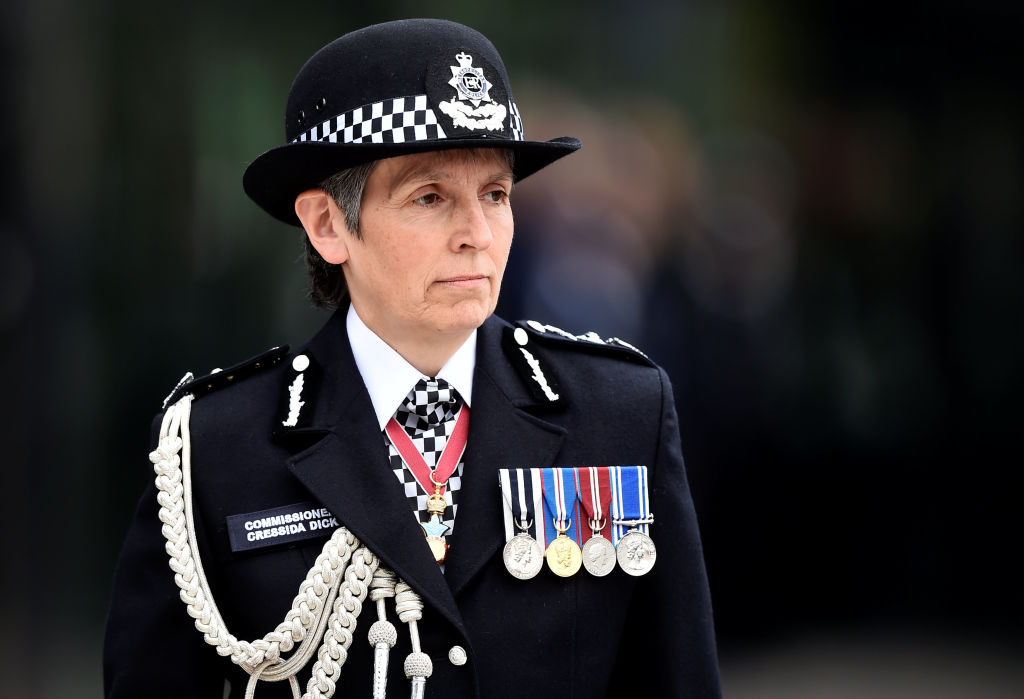The report by Sir Richard Henriques into Operation Midland argued that the Metropolitan police was institutionally incompetent, stupid and credulous. If the devastating report by the independent panel into the 1987 murder of Daniel Morgan is to be believed, the force is also institutionally corrupt.
The institutional corruption consisted of dishonestly ‘concealing or denying failings, for the sake of the organisation’s public image.’ And the ‘failings’ which the Met tried to conceal or deny appear to have sometimes consisted of actual, old-fashioned corruption by individual police officers. The stench rises overpoweringly from every one of the report’s three volumes.
From the very first vital minutes after the private investigator Daniel Morgan was discovered axed to death in a dark corner of a Sydenham car park, successive police investigations were so bungled and so incompetent as to beggar belief.
The crime scene was not properly secured. Suspects and witnesses were drinking buddies with police officers who then took their statements. Obvious witnesses were not spoken to until months after the murder, once their memories and any clues they might provide had long since gone cold. No log ‘containing any coherent lines of enquiry’ appeared to have been kept, or – perhaps even worse – it has since gone missing. Exhibit bags were left open and contaminated. Sensitive information was leaked to the press. When a murder prosecution was eventually brought it collapsed in 2011 amidst catastrophic disclosure failures, leaving Mr Morgan’s family devastated.
If the panel’s assessment of Cressida Dick’s behaviour is correct, she is unfit to be a police constable
All along politicians were told, and dutifully repeated, the official line: that investigations into both the murder and police corruption allegations had been assiduous and conscientious. That was untrue.
At the centre of many of the inquiries was Jonathan Rees, Mr Morgan’s business partner, and a man with extensive connections within the police, as well as sections of the tabloid press, particularly the News of the World, to whom he regularly sold stories. That he was a man capable of serious and devious criminality is not in doubt: he was sentenced to seven years in prison for conspiring to plant cocaine on an innocent woman as part of a custody battle. Was he – or were other suspects – protected by corrupt officers within the Met? Could it even be that police officers were themselves responsible for Morgan’s murder? The questions the nation’s largest police force must answer could hardly be more serious.
So when in 2013 Theresa May, then Home Secretary, announced the establishment of the independent panel, the force promised to cooperate. Yet its promise was soon shown to be empty. Instead of receiving the assistance it expected, and that Mr Morgan’s family deserved, the panel found itself obstructed at every turn. For seven years the Met denied the panel access to evidence, and in particular to the vital ‘HOLMES’ computer system. The officer primarily responsible for what the panel regarded as disreputable delaying tactics was assistant commissioner Cressida Dick. She was in due course appointed commissioner. If the panel’s assessment of her behaviour is correct, she is unfit to be a police constable.
Of course it is right that commissioner Dick should be given an opportunity to defend herself. There are dangers in the panel report delivering its final verdict without hearing her explanation. But the report adds to a growing sense that the Met is in urgent need of reform.
So disastrous have been some of its failings in the last decade that one might have expected the senior officers responsible to have taken some responsibility for them. Instead, they have been showered with rewards.
Steve Rodhouse, the Gold Commander of Operation Midland, was made a director general of the National Crime Agency on a pay package of up to £245,000.
Bernard Hogan-Howe, who headed the Met both during Operation Midland and for much of the time it was engaged in frustrating the Daniel Morgan panel was given a peerage.
And Dick remains Commissioner.
What confidence can the public now have in a Metropolitan police that cannot police itself? What confidence can we have that it investigates offences properly and impartially, or that it discloses unhelpful evidence fairly, or that it is free of any taint of corruption? What confidence can we have in a police force accused by the panel of ‘dishonesty’?
The dreadful answer seems to be, as Daniel Morgan’s family have been telling us for years, that despite the conspicuous gallantry and devotion to duty shown by thousands of individual officers, we can’t have confidence in the Met. The organisation is rotting from the head down.





Comments